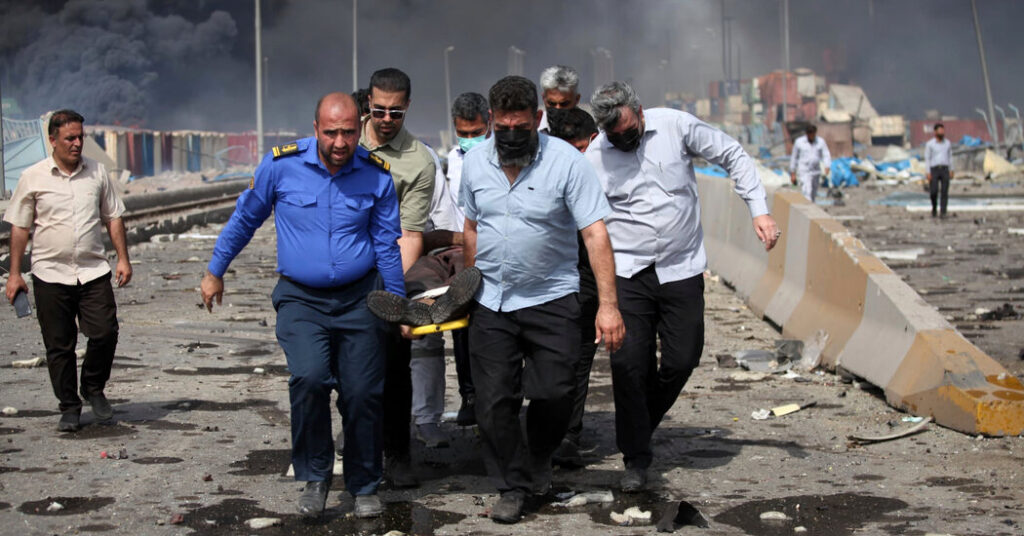A massive explosion at a port in southern Iran on Saturday killed at least 14 people and injured more than 700, according to state media, and touched off a major fire at the country’s most important import hub.
A person with ties to Iran’s Islamic Revolutionary Guard Corps said that what exploded was sodium perchlorate, a major ingredient in solid fuel for missiles. The person spoke on condition of anonymity to discuss security matters.
The state-run Islamic Republic News Agency quoted an official as saying the explosion was likely set off by containers of chemicals, but did not identify the chemicals. What caused them to detonate was not clear, but the Iranian authorities did not suggest it was sabotage or a deliberate attack.
The security firm Ambrey told The Associated Press that there were indications that the blast resulted from improper storage of sodium perchlorate at the port. The Financial Times reported in January that China had shipped the chemical to Iran, whose stocks of missile propellant were depleted last year when it and its proxy, Hezbollah, launched missiles at Israel.
The explosion and fire sent up immense clouds of black smoke, according to footage from the scene distributed by an Iranian broadcaster and video from social media that was verified by The New York Times. State media broadcasts showed the fire still spreading through the sprawling port complex on Saturday night, several hours after the initial explosion.
The port is Iran’s largest, and last year it handled 85 percent of the country’s shipping container traffic, as well as a large portion of its oil, according to the Port and Maritime Organization.
“Even a two-week halt to the operation of this strategic port, due to physical and operational destruction, can be extremely damaging to the country’s economy,” Abdollah Babakhani, an investor in renewable energy and an economic analyst, wrote in a post on X.
Iran’s heath ministry, citing airborne toxic pollutants, declared a state of emergency in Hormozgan province, asking people to stay indoors, keep windows closed and wear masks.
Masoud Pezeshkian, the Iranian president, said the country’s interior minister was heading to the region to oversee an investigation into the explosion. He expressed “deep sorrow and sympathy” for the explosion’s deadly toll.
Bandar Abbas is strategically located along the Strait of Hormuz, where the Persian Gulf meets the Gulf of Oman — a busy shipping lane for the world’s oil and natural gas.
In 2020, Israel launched a cyberattack that hampered operations at the Shahid Rajaee port as part of its long-running shadow war with Iran. Israeli officials did not immediately respond to a request for comment on Saturday’s explosion.
But in an apparent attempt to rebut rumors of Israeli involvement, the office of the Iranian attorney general issued a statement denouncing “online activists” who spread rumors that undermined the “psychological security of society.”
The explosion came around the time that American and Iranian officials began meeting in Oman on Saturday for a third round of talks on Iran’s nuclear program.
Last week, The New York Times reported that Israel had planned to attack Iranian nuclear sites as soon as next month, but it was waved off by Mr. Trump, who wanted to negotiate an agreement with Tehran instead. However, Mr. Trump has also vowed to prevent Iran from obtaining a nuclear weapon, including by military action if necessary.


